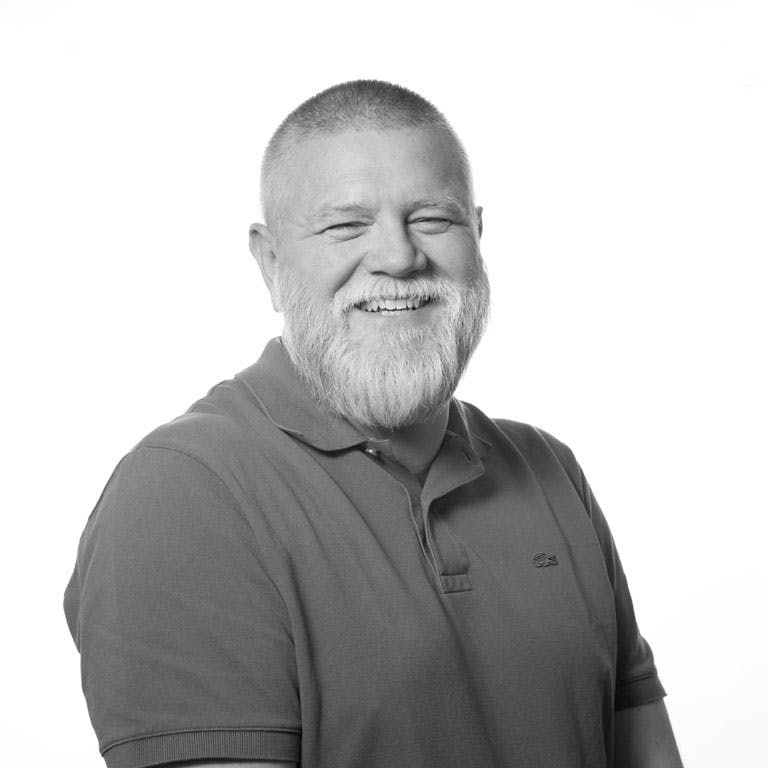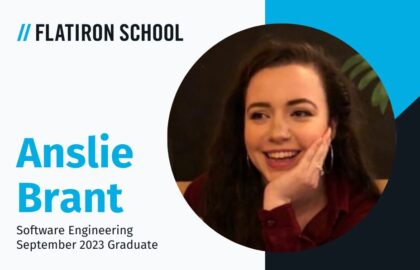Eikos CTO On Hiring Tech Talent

David Lattimore-Gay, Partner and Chief Technology Officer at Eikos, recently spoke with Flatiron about his experience interviewing and hiring Flatiron grads.
You’ve put in the time and plugged away to complete a rigorous programming curriculum – you’re finally there! But there’s still one hurdle to clear before you land a position in your new field: the interview.
Whether you’ve done dozens of job interviews or only a handful, the process can be nerve-wracking. Luckily, Flatiron graduates tend to have several core qualities that turn job opportunities into job offers.
David Lattimore-Gay, Partner and Chief Technology Officer at Eikos, recently spoke with Flatiron about his experience interviewing and hiring Flatiron grads. And it’s no surprise to us which characteristics he said are common amongst successful candidates.
Flatiron: Tell me more about Eikos.
David: Eikos is a full stack development company that specializes in the financial tech environment, which spans from what end users operate all the way to the database. But we do more than just programming work; we also do architecture and consulting. A typical example would be a client asking us to architect solutions and oversee developers. Right now, our clients range from hedge funds to commercial and private banks. It’s pretty broad, but essentially, we’re a boutique software consulting company that tackles hard problems.

Flatiron: What would you say are some common traits of your most successful junior developers?
David: A standout characteristic is that they’re willing to explore, willing to investigate—very much the kind of self starter everyone wants on their team. Our junior developers approach work like no problem is too small because they’re willing to dig to find or create the answer. On the personal side of the spectrum, they’re very humble. Successful developers of any level are team players who thrive when working with others. Our company and the industry as whole needs people who can exchange ideas freely with their teams.
Flatiron: How do you look at CS grads vs. Bootcamp grads? What does each bring to the table?
David: Flatiron is like your second chance to make something big happen. We see a certain level of maturity from graduates who come out of Flatiron. They’re willing to do what needs to get done and they show a lot of pride in taking on that work. This maturity also helps them play well with others; they often seem to understand how the world works, especially when they have had some sort of career in another field already. They also come with a solid understanding of the technology and often approach problems through that lens.
Flatiron: Tell me about your on-boarding. Has it changed as the candidates you're hiring change?
David: I don’t think it has changed that much, because whatever your background, you learn an incredible amount when you’re hands on with projects and clients. We don’t really provide technical training, but what we do provide is insertion into a team that allows professionals to evolve and work within all these environments to get up to speed. You get to work on non-critical client issues, learn how everything works internally, discover best practices, etc. We like to think of it as learning through osmosis, absorbing what the team around you has to offer.
Flatiron: Does the programming language a person learned matter?
David: That’s not really important. If someone came in and said I have Java experience, great, but it’s not a requirement. What’s a requirement is that they understand how to program. If the person understands the basic constructs, then everything else can be learned reasonably quickly. Programming languages, to me, are a minor consideration. If I were looking for someone to do analytics or low-level coding, I might be more concerned about that.
Flatiron: What non-technical attributes do you look for? Do you have a story about a candidate that was technically capable, but was not a good fit. If so, why weren’t they?
David: From a Flatiron perspective, we’ve been pretty lucky getting technically savvy graduates who also have the personalities we look for. And in general, we’ve really only experienced a few wrong fits. In those cases, it was with some technically brilliant people whose social skills, attitude, and myopic view of how things should be done was more a hinderance than a help. Again, this came back to the lack of maturity and lack of appreciation for the opportunity. We’re in the client services business, so we want our employees who are client facing to be positive, proactive and team players. This is something that’s hard to teach.
Flatiron: You've hired several Flatiron grads before. What have you liked or noticed about them?
David: It goes back to those qualities that help them stand out in the first place. Right away, I can tell they’re usually more collaborative, willing to work in teams instead of diving in on their own. They appreciate free flows of information and communicating openly with internal team mates and external clients. It’s always refreshing to meet another grad who is technically brilliant and capable of making the team stronger with qualities you can’t necessary learn from any kind of programming immersive.
Flatiron: We’ve got a new graduating class finishing up – what’s the one piece of advice you’d give them?
David: You got a great platform to build from, but be open to new ideas and recognize that you will always be learning.
Flatiron: What’s the best tip you’ve ever received about preparing for an interview?
David: Be humble and recognize that you don’t know everything.
Disclaimer: The information in this blog is current as of April 1, 2016. Current policies, offerings, procedures, and programs may differ.



